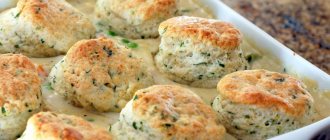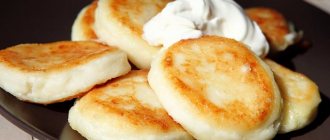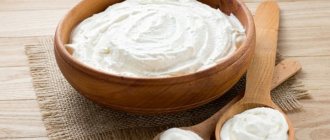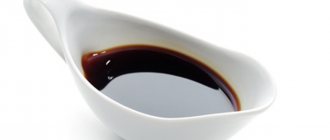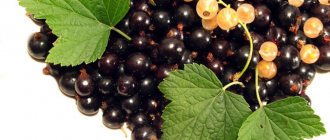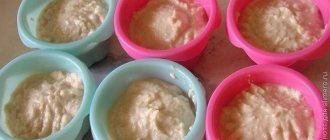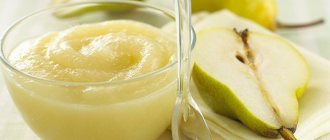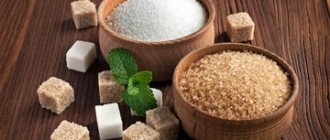Pineapple is a common exotic fruit in our country. Available on shelves all year round. Therefore, young mothers often want to find out information about whether it is permissible to include fruit in the diet if she is on breastfeeding. Let's try to analyze in detail the intricacies of using an exotic fruit and establish the extent of its benefits and what negative consequences it may have.
No time to read? free list of allowed and prohibited foods during lactation
Benefits of fruit
Quite often, women who are breastfeeding have a question about what they should eat and what they should refuse and wait for a later period. You should know that if you have an irresistible desire to try a piece of fruit, then most likely the body is experiencing a shortage of B vitamins. With such signals it tries to make up for its deficiency. But, before you buy this exotic product, you need to understand how useful fresh and canned pineapple are for breastfeeding. It can also cause harm – and how serious it is.
For a young mother
From a certain age of the baby, a nursing mother can eat pineapple. He will help her:
- Strengthen the walls of blood vessels, reducing the risk of varicose veins.
- Improve the functioning of the digestive system.
- Relieve some of the symptoms of pancreatic disorders.
- Break down fat and help digest proteins, which promotes weight loss and the formation of proper muscle mass.
- Saturate the body with a large amount of micro- and macroelements, as well as vitamins.
- Reduce the risk of osteoporosis, which is especially important after pregnancy.
For the baby
When it is decided that nursing mothers can already eat pineapples, it is necessary to decide whether to eat it in the form of fresh peeled pulp, or try it in the form of canned food. And, naturally, it allows you to achieve the greatest benefits precisely in its freshly purified form. This way, breast milk will receive a larger amount of beneficial biochemical components. And, consistently, the child will benefit more.
It is also necessary to know such a feature of the tropical fruit as the formation of an allergic reaction. It manifests itself more clearly when a woman eats canned fruits.
Table: nutritional and energy value of fresh, canned pineapple and candied fruits from it per 100 g of product
| In the pulp of fresh fruits | |
| Energy value | 49 kilocalories |
| Belkov | 0.5 g |
| Zhirov | 0.35 g |
| Carbohydrates | 10.6 grams |
| Candied | |
| Energy value | 100 kilocalories |
| Belkov | 1.76 g |
| Zhirov | 18 g |
| Carbohydrates | 2.2 g |
Table: content of essential vitamins, macro- and microelements in pineapple per 100 g of product
| Vitamin C | 13 mg |
| Pantothenic acid | 0.25 mg |
| Niocin | 0.5 mg |
| Folic acid | 6 mcg |
| Vitamin A | 4 mcg |
| Vitamin E | 0.4 mg |
| Gland | 0.4 mg |
| Potassium | 135 mg |
| Calcium | 18 mg |
| Sodium | 1 mg |
| Magnesium | 14 mg |
| Phosphorus | 8 mg |
As can be seen from the data presented, the fruit is quite rich in useful biochemical components. But canned pineapples have much less benefits, so whether you should eat them while breastfeeding is something to think about. After all, there is much more sugar and significantly less benefits.
The effect of pineapple on lactation
When breastfeeding mothers can introduce canned pineapples into their diet, it is necessary to understand whether this will affect the level of lactation and the quality of milk.
There is no doubt that, due to its specific composition, it is able to improve the composition of breast milk. It saturates it with useful substances. But it is not capable of increasing the quantity, in any of its forms.
Possible harm to the fruit during lactation
At a time when a nursing mother has decided that she can now eat canned pineapples, it is necessary to understand whether they can harm her baby.
Experts unanimously say that these exotic fruits are a powerful allergen. They can provoke rash, itching, allergic rhinitis and its complications. Therefore, if you want to treat yourself to this delicacy, you need to start with minimal doses. And only after making sure that there is no negative reaction, continue to use it. The amount of fruit eaten at a single dose and in one day should begin with minimal volumes and only gradually, quite slowly increase the portions.
Pediatricians' opinion on pineapple consumption by nursing mothers
Children's doctors recommend that a woman who is breastfeeding be very careful about any products that are not recommended from birth. Of course, when carrying out a feeding regimen for a baby during breastfeeding, each woman decides for herself to eat pineapples. But pediatricians recommend maintaining the maximum possible period of time in order not to harm the baby.
Although, if the mother ate the fruit and the baby had an allergic reaction, then you just need to exclude it from your menu. And in the baby, after a maximum of 4 days, all manifestations should go away.
Doctors also pay special attention to the fact that if a woman exhibits various types of allergies, then the child will also be prone to such reactions.
How to choose the right pineapple?
The ripeness of the fruit is indicated by the condition of the skin - it should be uniform, yellow-brown, and free of spots. The green tail should break off easily from the top. The pineapple rind should be dense and elastic. When tapping, a dull sound is heard.
Candied pineapple contains a high amount of acid and can cause heartburn. In their production, the preservative E220 (sulfur dioxide) is often used, which neutralizes the vitamin and causes a serious reaction. However, you can make these fruit chips yourself.
Canned pineapples are also not useful during lactation, because long-term storage destroys almost all vitamins, and sugar syrup contains extra calories. In addition, the syrup contains preservatives and flavor enhancers that are dangerous for children.
The question of whether pineapple can be used for breastfeeding cannot be answered unambiguously, because the decision depends on individual characteristics and health status.
Fresh pineapples for breastfeeding
It is necessary to understand that, like any other fruit, this exotic fruit is also most useful in its raw form, that is, not subjected to heat treatment. It is this form that ensures the maximum supply of everything useful. But in any processed form, the benefit is significantly reduced. Therefore, although while in breastfeeding mode, eating canned fruits is not prohibited from a certain period of time, whether this can and should be done - each woman decides for herself.
Is it possible to eat canned pineapple while breastfeeding?
Any heat treatment eliminates most vitamins, except fat-soluble ones. Vitamin C is destroyed almost completely. Therefore, when, while breastfeeding, mothers become interested in whether it is possible to try pineapple, doctors advise to refrain from this delicacy.
Canned pineapples during breastfeeding: benefits and harms
Among the benefits of canned fruits, only the taste pleasure of the receptors of a woman who misses various delicacies is noted.
Among the main harms is a severe allergic reaction, which manifests itself precisely after heat treatment.
Another fact not in favor of exotic is the additional amount of sugar, which does not have a positive effect on either the woman or the baby.
It is necessary to pay attention to the following feature of any plant food that has a certain level of acid and is preserved. It reacts with metal. It is during such contact that the liquid and solid components of canned food are filled with various metal oxides, and, even worse, various toxic substances. This is especially evident when the technological stages of production of such types of canned food are disrupted. To avoid this, you should give preference to glass containers and responsible manufacturers, preferably producing products under a well-known brand.
Weighing the feasibility and other factors for herself, each mother, while breastfeeding, will decide for herself whether she can try and eat it. Or you should delay including this delicacy on the menu.
Useful properties of pineapple
Pineapple is a genus of herbaceous plants belonging to the Bromeliad family. It is considered a low-calorie dietary product and helps improve health.
A woman overcomes serious challenges, starting from pregnancy and ending with childbirth. Stress for the body does not go away without a trace and in the first months the body is weakened, fatigue, weakness or external manifestations of vitamin deficiency are felt. Natural vitamins can restore normal health and lift your mood. Pineapple is incredibly tasty and healthy. The composition and beneficial properties are characterized by chemical compounds.
The exotic delicacy is consumed fresh, canned, or candied fruit or juice is made from it. The pulp of the fruit consists of water, carbohydrates, coarse fiber, and protein. The beneficial properties of pineapple juice can saturate breast milk with everything it needs.
Compound:
- Vitamins of group B, PP.
- Vitamin C.
- Beta carotene.
- Iron, zinc, phosphorus, potassium, calcium.
- Amino acids.
Part of the beneficial properties comes from the presence of ascorbic acid, which is easily absorbed by the body. With its help, the immune system is strengthened, strength and vigor are restored. It is known that the properties of pineapple juice provide up to 80% of the body's daily requirement in vitamin C and 20% in potassium.
Vitamin B1 strengthens the nervous system and ensures proper metabolic processes. Fiber has cleansing properties, prevents excess food from remaining in the body, and normalizes digestion.
The substances that make up the basis of the fruit thin the blood, increase the elasticity of blood vessels, strengthen the heart muscle, reduce swelling and bad cholesterol. The fruit is especially beneficial in spring and autumn during vitamin deficiency. However, there are restrictions on the consumption of exotic fruit.
We recommend reading: Is it possible to use milk while breastfeeding?
Pineapple juice
When drinking the liquid squeezed from fresh pineapple, a woman may not think about whether it will benefit her. Everyone will undoubtedly answer in this case - yes. After all, such a drink is a concentrate of everything useful. But in order to avoid a too acidic aggressive environment on the gastrointestinal tract, it is worth diluting it with prepared water.
Properties of bromelain
Bromelain is an enzyme found in some plants, including pineapple. It has the ability to digest proteins. The substance is obtained from the pulp and stems.
Beneficial properties of the enzyme:
- reduces the inflammatory process;
- eliminates swelling;
- regenerates wounds;
- facilitates digestion;
- heals the heart;
- reduces the number of cancer cells.
To obtain the enzyme, eat the pulp, drink juice or use dietary supplements. It is not recommended to take bromelain if you have bleeding disorders or allergies.
Candied pineapple
Candied fruits are prepared in the vast majority of cases with the addition of sugar syrup. But this product will not be useful for either the woman or her baby.
The only thing that is allowed during this period is dehydrated slices or pieces. These candied fruits are made without adding sugar. And the increased level of sweetness is achieved by sucking maximum water from the fruit segments.
Beneficial properties of pineapple juice for women during breastfeeding
Pineapple is a juicy and original fruit. Mostly it consists of water. In addition, there are vitamins of groups B, C and PP, as well as iron, zinc, magnesium, iodine, fiber, and essential oils.
Regular consumption of pineapple juice helps:
- Strengthening the immune system.
- Normalization of the cardiovascular system.
- Blood thinning.
- Reducing the likelihood of developing thrombosis.
- Reducing blood cholesterol levels.
- Removing waste and toxins.
- Elimination of edema.
- Improving the functions of the musculoskeletal system.
- Toning the body.
- Improve your mood.
- Fighting excess weight.
How to properly introduce it into your diet
Like any other type of new dish or mono-component, fruit must be correctly introduced into the diet. This approach not only ensures that the negative reaction is minimized, but also does not create a condition such as an allergy in the child.
In the first month
The first 30 days of a baby’s life are completely unsuitable for the mother to eat such a strong allergen. This applies to any form of exotic fruit.
At 2 months
In the next month of life, it is extremely undesirable to risk the child’s fragile digestive system. This fruit should not be eaten in any form.
At 3 months
But from this age of the child’s life there comes a time when the mother is allowed to add some additional food products to her rather meager diet. This also applies to pineapple. But it’s worth starting with diluted juice. And then in the smallest quantities.
At 4 months
From this point on, a woman can begin to consume freshly peeled slices or rings. Do this with a small portion, only gradually increasing the amount.
It is necessary to carefully monitor the absence of a negative allergic reaction in the baby. To know exactly which product an allergy may occur to, a woman should add only one new product to her diet at a time. This way she will understand whether the baby has a reaction to it or not.
At 5 months
At 5 months, the baby’s digestive system is quite strong, which allows the woman to pamper herself with many delicacies.
If, for example, the baby reacted normally to fresh peeled fruit, it is permissible to add other forms of exotic preparation. It is only important to choose the highest quality.
Eating pineapple in subsequent months
In the future, mommy is allowed to eat the fruit more or less calmly, when before everything went fine, without side effects. But this does not mean that you can go all out and eat fruit without moderation. It is always worth observing the golden mean.
Rules for choosing fruit
When choosing this exotic fruit, you need to take into account several circumstances:
- The skin of the fruit should have a golden-brown color - this is a sign of maximum ripeness.
- The aroma should be audible even through the peel. It should not exude chemical notes.
- It is advisable for the top foliage to be slightly dry.
How to peel a pineapple?
Clean it as follows:
- Wash the fruit thoroughly.
- Dry it.
- Remove the top part with foliage.
- Then the base is cut flat.
- After this, thinly cut off the skin over the entire surface with a sharp knife.
- Then, if you have a special tool, remove the middle. If this is not the case, then you can use a knife to cut right through the hole. At this point the fibers are hard and impossible to chew.
Reviews from nursing mothers about eating pineapple
- I absolutely love pineapple in all its forms. Therefore, while I was breastfeeding, at an early stage I experienced an acute shortage of my favorite fruit. Then, when the baby was 3 months old, she tried to eat pineapple. She had no allergies, so I breathed a sigh of relief and continued to eat my favorite fruit in small quantities.
- The child reacted negatively when I tried fresh pineapple. Covered with red pimples all over my body. I had to exclude the fruit from the menu.
- I love pineapple, but when I was breastfeeding I realized that it was an allergen. Therefore, I tried not to consume my favorite exotic. And when my son was 6 months old, I ate a slice of fresh fruit for the first time. Fortunately, it didn't give me any allergies.
The fruit has beneficial qualities, but before you try even a piece, it is worth remembering that it is an allergen. If you have an irresistible desire to try it, then you should introduce it into your diet only in the way recommended above.
Possible pineapple allergy
Fresh fruit contains much more useful elements that a woman’s body, weakened by childbirth, needs. Fresh products are much less likely to provoke an allergic reaction than canned products. For this reason, a nursing mother should not consume canned food.
If a woman did not eat exotic fruits during pregnancy, this will be the first time for the child. Everything that the mother eats during the period of gestation is, to some extent, transmitted to it through the umbilical cord.
During lactation, it is better not to experiment with various allergens, because... can harm the child. And often it is impossible to predict how the baby’s body will respond. Experts advise nursing mothers not to include pineapple in their diet.
But if the fruit has already been eaten, then the presence of an allergic reaction in a child can be determined by eye. It manifests itself as follows: a rash with redness appears. An allergy can occur within 48 hours after introducing a new product into a mother’s diet.
We recommend that you read the benefits and harms of St. John's wort tea
When the allergen is excluded from the diet, the reaction goes away on its own after 2 days. If an allergy occurs in a baby, you should immediately contact your pediatrician, and the mother should completely avoid this product until breastfeeding stops.
It is best to introduce a new product into your diet after your baby is 3 months old. It is not recommended to include several fruits in your diet at the same time.
